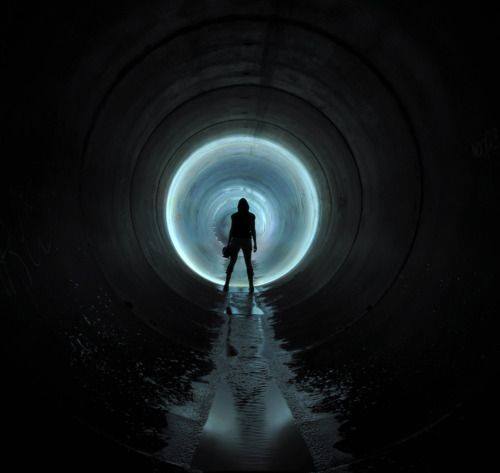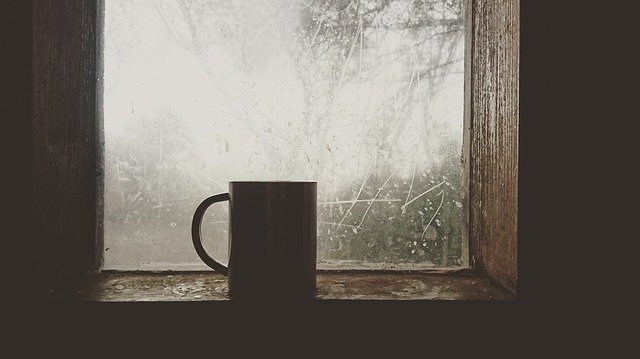(1)
In the high places of the heavens was a treasure house, and stored within it were dark orbs filled with vapors that formed multicolored streaks inside of them, flaring and flickering like small bolts of lightning wrapped in silvery mist.
The orbs were sacred to the gods ruling the Higher Worlds, and their children were admonished never to go inside the treasure house.
One day a lesser god, newly made and barely beyond mortal, was sent to fetch an orb for the Higher Worlds. He found it, but grew distracted by its beauty and didn’t fully shut the door as he left.
The children, whenever they played near the treasure house, always had a lookout for just such an opportunity. They would, they told themselves, only go inside to look around and not touch anything lest they get in trouble and stir their fathers to wrath.
When they entered, they tried to keep their promise, but children and orbs are meant to play; the girls took them and threw them to one another; the boys threw them at one another, and for a time, they laughed and played, but one of them missed his target.
The orb rolled outside the open door.
The children, forgetting they weren’t supposed to be there, took some of the other orbs outside to play with as well, but the orbs didn’t fall to the ground.
Delighted to see the orbs float, the children flung them up into the sky, and the orbs gained speed and whipped out of sight.
The lightning mixture within the orbs began to change: some burned with hot light, others with cool.
Some formed rings around the sphere and turned bright colors that pleased the children and made them point and ‘ohh’ and ‘ahh.’
Some of the dark orbs clustered and collected some of the bright ones, turning them as dark as they were, absorbing all their light.
Others grew pockmarked, and some let foul smelling vapors escape. Some shattered, but all of the pieces went into space, or just vanished.
Some caught fire, and some did not.
The gods were dismayed to learn what happened, and cast spells so the far-flung jewels would stop moving. Then they casst spells that formed pinwheels from the jewels so that the winds of space could spin them, keeping them contained until the High World gods could gather them once more.
************
(2)
The four daughters of the King of gods were in the treasure house when the accident occurred. As the orbs fell and tumbled, there was one that especially stood out to them, one of a blue-green color that pleased the eye.
The four of them, desiring it, placed their hands on it. Having held other orbs and discarded them for this one, the residue of the others were still on their hands and transferred to the blue-green sphere.
The first one to touch saw the season of winter manifest as caps of ice and snow, formed on the top, then broke in half as one piece slid to the bottom, and the flakes of snow began to fall from her fingertips for a time, for the orb she had taken before was cold.
The second daughter, who’d taken a hot orb she could not hold, the cool blueness became dry and brittle, and the blueness sank as grains of yellow, white, pink, and black fell from her fingers and shifted under the restless wind. The larger clusters were dark and hard, and she named them stones, and the blueness grew hot beneath her hands.
The third had touched a warm orb, so when she placed her hands on the blue one, the green strands rapidly expanded, forming wide expanses of trees and grass, with patches of colors that grew at the end of something stouter than grass, but not as firm as trees. She named these flowers.
Liquid had filled the fourth daughter’s first orb, so when she touched the blue one, the blue places began to move and shimmer, turning into a liquid that was clear, clean, and cool to the touch, but reflected the white, blue and green strands that had morphed into something else.
Its power moved the sand and ice, and filled the other places the sand and stones had not, and covered some of the grass, ice, and snow.
As they strove for sole possession of the blue orb, it shook with the force of its first storms, raging across its surface.
Their father summoned them.
The oldest daughter, taking one last look at its beauty, quickly placed the blue orb back into the spinning clusters.
*************
(3)
The following day, they went to their father and asked of him if they might make more things for the orb, and as he delighted in them, he gave them permission.
Each daughter made something for the area she had touched, but they knew they would not be allowed to pluck the orb from its place anymore.
They would have to create their items at home and take them there, so they began to work.
The fourth daughter crafted small dolls of fabric and carefully colored their faces and bodies, and so they too could play.
Her sisters laughed and applauded her cleverness, and contributed her work.
The first gave them speech.
The second gave them thoughts.
The third gave the fabric colors. “That way we can tell them apart.”
The task now completed, each one put the new figures in baskets and took their father with them to decorate the blue orb.
Placing each figure carefully in a region of their creation, the king blew on the orb, and the figures sprang to life and walked about on it. The daughters smiled and laughed to see their antics.
“Come, my daughters. You may visit the orb whenever you wish, but don’t ever move it. Only the gods must retrieve them and put them away.”
“When will that be, father?” asked the first daughter.
“I cannot say, for the orbs were many, and scattered so far; I don’t know they’ll ever bother to gather them, but as long as this stays here, you may add to it, or take from it whatever you wish.”
“What shall we name it, and the figures on it?”
“Call it Earth, and the figures, people.”
They giggled at the word ‘people,’ and another suggested, ‘human,’ which also made them giggle.
“Enough, now,” Father said. “We must return. Say farewell to Earth and its human people.”
The girls sobered, and sadly bid farewell.
But the gods have not yet come, and the Four Daughters have not visited for some time; being the daughters of a king, perhaps they’ve taken on other duties and have no more time for play.
We will have to carry on without them.









